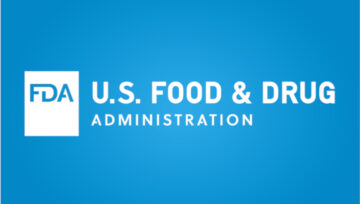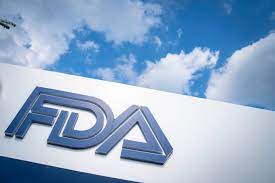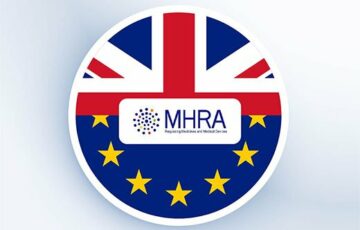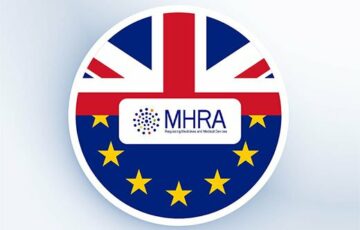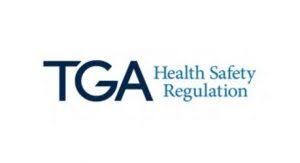The article provides a general overview of the regulatory requirements for recall procedures for healthcare products intended to be marketed and used in Pakistan.

Table of content
The Drug Regulatory Authority of Pakistan (DRAP), the country’s regulatory agency in healthcare products, has published a guidance document dedicated to recall procedures to be followed concerning healthcare products placed on the country’s market.
The document provides an overview of the applicable regulatory requirements, as well as additional clarifications and recommendations to be taken into consideration by medical device manufacturers and other parties involved to ensure compliance to them.
The authority also reserves the right to make changes to the document and recommendations provided therein, should such changes be reasonably necessary to reflect corresponding amendments to the underlying legislation.
Historical Background
First, the authority provides an overview of the historical background associated with the regulatory framework for recalls. According to the document, the inception of these guidelines dates back to their first publication on November 17, 2021, following thorough evaluations of feedback from both internal and external stakeholders.
The current edition has undergone revisions to align with the latest international practices and the recommendations set forth by the World Health Organization (WHO).

Scope of Application
These guidelines are addressed to all the entities involved in manufacturing processes associated with the therapeutic goods and supply chain, including healthcare professionals, patients, clinical trial sponsors, and regulatory personnel.
The document outlines the responsibilities of manufacturers, importers, distributors, retailers, and sponsors in the voluntary or mandatory recall of potentially defective therapeutic goods, including those under investigation in clinical trials.
The primary aim is to delineate the procedures for the authority and the pharmaceutical industry to efficiently remove harmful therapeutic goods from the market, thus protecting public health and ensuring the safety of patients.
Objectives
As further explained by the authority, the main goals of the present guidance are to:
- Facilitate the recall of defective products;
- Categorize recall processes;
- Enhance the communication of recall alerts to all stakeholders, including the general public;
- Ensure the execution of recalls efficiently and effectively;
- Protect public health from defective products.
Additionally, these guidelines assist the therapeutic goods industry representatives in managing product recalls, detailing the information required by the DRAP, and informing consumers about recalls initiated.
Introduction to Regulatory Oversight
By the applicable legislation, the Drug Regulatory Authority of Pakistan ensures that therapeutic goods meet established quality, safety, and efficacy standards. In cases where goods are found potentially harmful, a recall is initiated to promptly remove these products from the market.
This guidance summarizes the actions necessary for an effective recall process.
It is also important to mention the DRAP’s role in post-marketing surveillance under the DRAP Act 2012, emphasizing the importance of compliance with quality assurance, drug recall, and withdrawal procedures.
Key Terms and Definitions
To assist the parties involved with interpreting the provisions of the applicable legislation, the authority also provides definitions of the most essential terms and concepts used in the context of recalls related to therapeutic products including, among other things, the following ones:
- Authentication and Authorization: Authentication involves verifying the distribution history of therapeutic goods upon receipt. Authorization is the permission granted by the DRAP for the manufacturing, import, export, sale, or supply of therapeutic goods.
- Batch or Lot: A defined quantity of material processed in a manner that ensures its expected homogeneity. In continuous manufacture, a batch corresponds to a specific fraction of the production.
- Batch No. (or Lot number): A unique identifier for a batch, facilitating the traceability and review of the production history.
- Quality Control and Recall: The quality control laboratory (QCL) is designated for the testing and analysis of therapeutic goods. A recall involves the market removal of specific product batches due to concerns over quality, safety, or efficacy.
Compliance Aspects
The guidelines additionally emphasize that marketing authorization holders are responsible for ensuring awareness and adherence to recall procedures across the supply chain.
This approach is intended to facilitate the rapid and complete recall of defective goods to protect health and comply with regulatory standards within stipulated timelines.
Conclusion
In summary, the draft guidance issued by the DRAP provides a comprehensive overview of the regulatory requirements for recalls in healthcare products.
The document emphasizes the key points to be considered by medical device manufacturers, importers, suppliers, and other parties involved in operations with therapeutic goods allowed to be marketed and used in the country.
How Can RegDesk Help?
RegDesk is a holistic Regulatory Information Management System that provides medical device and pharma companies with regulatory intelligence for over 120 markets worldwide. It can help you prepare and publish global applications, manage standards, run change assessments, and obtain real-time alerts on regulatory changes through a centralized platform. Our clients also have access to our network of over 4000 compliance experts worldwide to obtain verification on critical questions. Global expansion has never been this simple.
Want to know more about our solutions? Speak to a RegDesk Expert today!
–>
- SEO Powered Content & PR Distribution. Get Amplified Today.
- PlatoData.Network Vertical Generative Ai. Empower Yourself. Access Here.
- PlatoAiStream. Web3 Intelligence. Knowledge Amplified. Access Here.
- PlatoESG. Carbon, CleanTech, Energy, Environment, Solar, Waste Management. Access Here.
- PlatoHealth. Biotech and Clinical Trials Intelligence. Access Here.
- Source: https://www.regdesk.co/drap-guidelines-on-recalls-of-defective-products-overview/
- :has
- :is
- :where
- 1
- 120
- 17
- 2012
- 2021
- a
- About
- access
- According
- across
- Act
- actions
- Additional
- Additionally
- addressed
- adherence
- agency
- aim
- Alerts
- align
- All
- allowed
- also
- amendments
- among
- an
- analysis
- and
- applicable
- applications
- approach
- approval
- ARE
- article
- AS
- Assessing
- assessments
- assist
- associated
- assurance
- Authentication
- authority
- authorization
- awareness
- back
- background
- BE
- been
- both
- by
- CAN
- cases
- centralized
- chain
- change
- Changes
- clients
- Clinical
- clinical trials
- Communication
- Companies
- complete
- compliance
- comply
- comprehensive
- computational
- concepts
- concerning
- Concerns
- conclusion
- consideration
- considered
- Consumers
- context
- continuous
- control
- Corresponding
- corresponds
- country
- country’s
- Credibility
- critical
- Current
- Dates
- dedicated
- defined
- definitions
- designated
- Detailing
- device
- distribution
- distributors
- document
- draft
- drug
- due
- edition
- Effective
- effectively
- efficacy
- efficiently
- emphasize
- emphasizes
- emphasizing
- ensure
- ensures
- ensuring
- entities
- essential
- established
- ethical
- evaluations
- execution
- expansion
- expected
- expert
- experts
- explained
- export
- external
- facilitate
- facilitating
- fda
- feedback
- First
- followed
- following
- For
- forth
- found
- fraction
- Framework
- from
- further
- General
- general public
- Global
- global expansion
- Goals
- goods
- granted
- guidance
- guidelines
- harmful
- Have
- Health
- healthcare
- help
- historical
- history
- holders
- holistic
- HTTPS
- identifier
- import
- importance
- important
- in
- inception
- Including
- industry
- information
- initiated
- Intelligence
- intended
- internal
- International
- interpreting
- into
- investigation
- involved
- involves
- Issued
- IT
- ITS
- jpeg
- jpg
- Key
- Know
- laboratory
- latest
- Legislation
- Lot
- Main
- make
- manage
- management
- management system
- managing
- mandatory
- manner
- Manufacturers
- manufacturing
- Market
- marketed
- Marketing
- Markets
- material
- max-width
- medical
- medical device
- Meet
- mention
- more
- most
- necessary
- network
- never
- no
- November
- number
- objectives
- obtain
- of
- on
- ones
- Operations
- or
- organization
- Other
- our
- outlines
- over
- overview
- Pakistan
- parties
- patients
- permission
- Personnel
- Pharma
- Pharmaceutical
- placed
- platform
- plato
- Plato Data Intelligence
- PlatoData
- points
- potentially
- practices
- Prepare
- present
- primary
- procedures
- process
- processed
- processes
- Product
- Production
- Products
- professionals
- promptly
- protect
- protecting
- provided
- provides
- public
- public health
- Publication
- publish
- published
- quality
- quantity
- Questions
- rapid
- real-time
- recommendations
- reflect
- regulatory
- related
- removal
- remove
- Representatives
- required
- Requirements
- reserves
- responsibilities
- responsible
- retailers
- review
- revisions
- right
- Role
- Run
- Safety
- sale
- set
- should
- Simple
- Solutions
- Source
- speak
- specific
- Sponsored
- Sponsors
- stakeholders
- standards
- such
- SUMMARY
- suppliers
- supply
- supply chain
- surveillance
- system
- taken
- terms
- Testing
- that
- The
- the information
- the world
- their
- Them
- Therapeutic
- therein
- These
- things
- this
- thorough
- those
- Through
- Thus
- timelines
- to
- Traceability
- trial
- trials
- ugc
- under
- undergone
- underlying
- unique
- upon
- used
- Verification
- verifying
- voluntary
- want
- WELL
- WHO
- with
- withdrawal
- within
- world
- World Health Organization
- worldwide
- you
- zephyrnet

